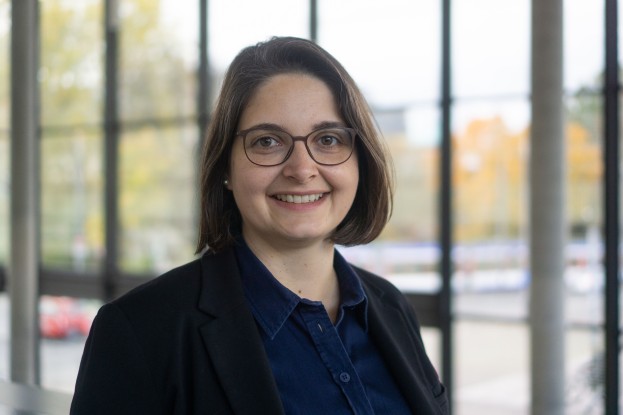How to institutionalize climate mitigation in the Global South?
Mind the gap between low carbon experiments and institutions
Over the last years, mitigating climate change has become an increasingly relevant political issue in the Global South. Myriads of projects, initiatives and policy interventions have been introduced in sectors like energy, agriculture or housing to tackle the climate crisis while at the same time ensuring development needs and priorities. Yet, we know relatively little about how to sustain and institutionalize these climate mitigation efforts in the global fight against the climate crisis. The DFG-funded research project “Institutionalizing Low Carbon Development” (INLOCADE) aims to analyze and better understand the processes and conditions under which climate change mitigation efforts can be politically institutionalized. In this collaboration between TUD and the University of Potsdam, we investigate the high-carbon intensive sectors of agriculture and energy in four emerging economies (Brazil, India, Indonesia, South Africa). Doing so, we aim to explain why the political institutionalization of climate change mitigation advances at different speeds, and why in some instances there has been little progress or even a reversal of former achievements.
In this context, we are looking for a short-term research student who explores the promises and pitfalls of institutions in mitigating climate change in the Global South with a particular focus on three dimensions: 1) the role of political leadership and other actors, 2) the role of bureaucracies and other administrative structures, and 3) the role of policies. All three levels are assumed to bridge the gap between climate mitigation experiments and sufficient institutional frameworks. However, the conditions under which they succeed or fail, remain underexplored. The short-term research student should gain an overview on the current state of research, investigate promising case studies and develop a working paper on the role of political institutions based on previous work as well as individual desk research and interviews (see detailed work plan below). While clearly related to the INLOCADE project, this short-term research stay should result in an independent and distinct research output, valuable for the successful candidate.
Relevance and Project Status
INLOCADE runs since January 2021 and is a joint effort between TUD and Potsdam University to investigate the political institutionalization of climate mitigation efforts. Political institutionalization refers to the process of developing or changing formal and informal rules (including organizations) which we consider the central – and often overlooked – link in bridging the gap between mostly small-scale climate mitigation projects, initiatives and experiments on the one hand, and the broader attempt for low carbon development on the other hand.
By early-2022, we will have developed a literature review on the institutionalization of climate mitigation efforts in the Global South, aquired country-specific knowledge on the four cases, and identified potential case studies in the fields of energy and agriculture which we will consider for field research later this year. By identifying and evaluating crucial cases, the short-term research student would make not only a valuable contribution to the project itself, but also develop an independent working paper that should be the outcome of the research stay in addition to networking and presenting his*her work.
Work Program
The research stay can be divided into three main phases:
- Desk research (preparation, weeks 1-3): The research student is expected to acquire an overview on the role of institutions in mitigating climate change with a focus on the three areas mentioned above. This includes a preparation shortly before or at the beginning of the research stay in Darmstadt starts which will be facilitated by the contact person at TUD. The desk research during the first three weeks should help the research student identifying key factors of success and failure to institutionalize climate mitigation efforts and discussing his insights with the INLOCADE team.
- Identification of best practices and expert interviews (weeks 4-7): In the second phase of the project, the research student will scan through a database of the various projects that were identified by INLOCADE before, to identify and initially explore a small number of cases as potentially crucial cases. She*he is expected to conduct interviews with knowledgeable academics and practitioners who are involved in these projects, to understand the project-specific contexts and conditions related to the three factors outlined above. He*she will have developed comprehensive overviews for 3-4 projects that draw the lines between project activities and institutionalization, thereby developing narratives of political institutionalization.
- Dissemination of results (weeks 8-10, follow-up): Finally, the research student is expected to develop a concise working paper that is not only relevant for the INLOCADE project, but also works as a stand-alone publication. The research student is also expected to present his results and reflections to an interested audience, e.g., during Prof. Lederer’s master colloquium, where experts are regularly invited to present their work.
Benefits and expected Outcomes
- Networking: The research student will be an integral part of the INLOCADE project and thereby work in close collaboration with other INLOCADE researchers on a daily basis. In addition, he*she will be introduced to the TUD Department of History and Social Sciences, especially to staff at the Institute of Political Science. In addition, we hope to establish a long-term exchange with the student beyond his*her visit in Darmstadt.
- Research skills: The student should have a good knowledge about qualitative research methods and preferably some understanding of development and environmental politics. During his stay, he*she will be engaged with desk research for a comparative analysis, conduct interviews with experts, and develop possible institutionalization pathways based on specific projects.
- Deliverables/outcomes: The research student is expected to summarize and present his research activities in an accessible and comprehensible format. A concise working paper as well as an open presentation of the results at the end of the term are two tangible outcomes of the research stay.
Additional Information
| Supervisor | Prof. Dr. Markus Lederer |
| Availability | Spring and Summer 2025 |
| Capacity | 1 Student |
| Credits | 18 ECTS |
| Remote Option | Yes |



